Embracing the Journey:
The Value of Process Over Product in Early Years
In this edition of the LINC Blog, LINC Graduate Judyta Golden shares her reflections on the importance of valuing the learning process in early years education. Drawing on her experiences as an outdoor preschool educator, Judyta explores how open-ended materials, creativity and child-led exploration offer rich learning opportunities that go far beyond the final product. This blog is a powerful reminder of the joy, meaning and magic that lies in the process of learning itself.
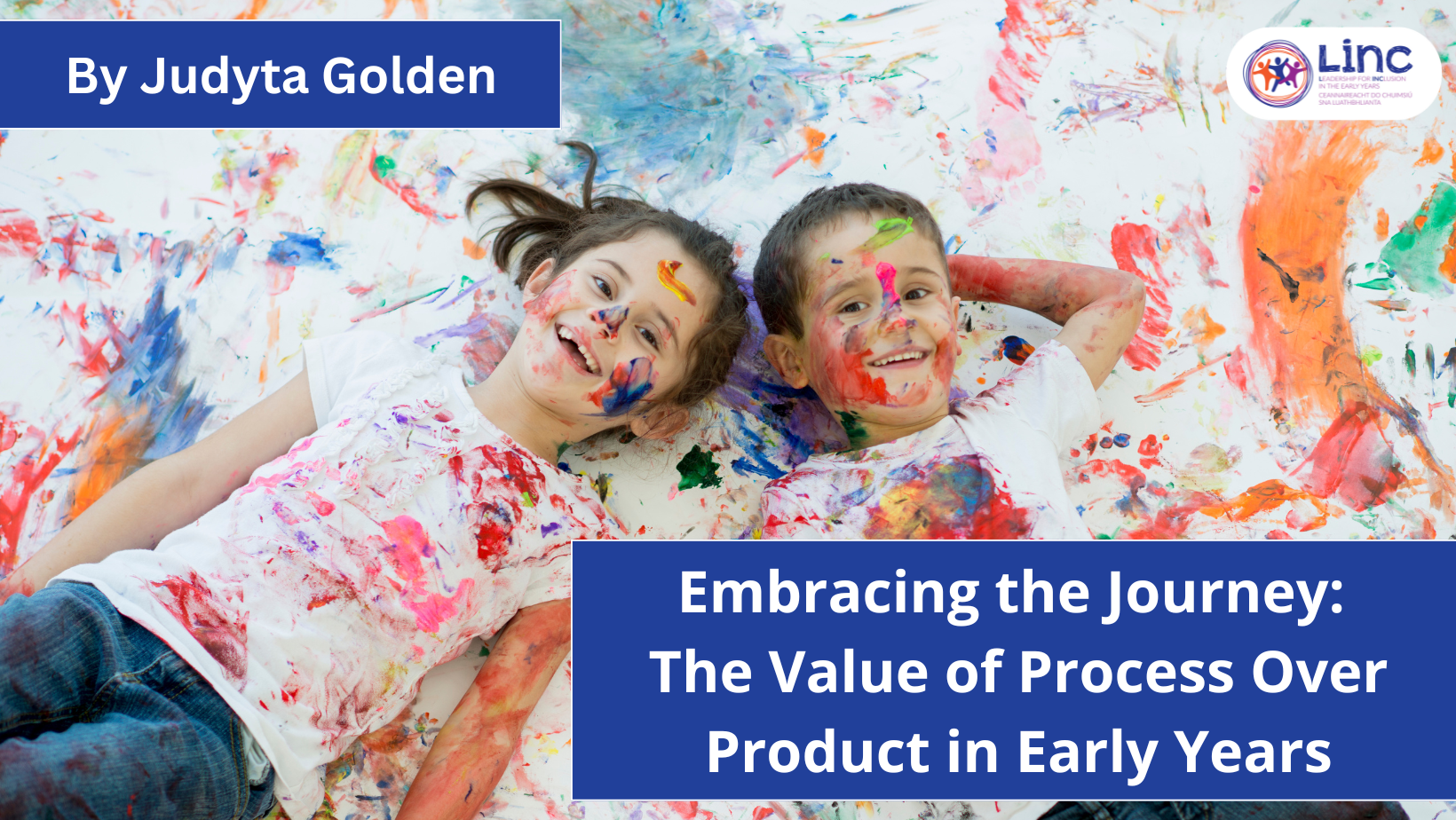
“Creativity is seeing what others see and thinking what no one else ever thought.” – Albert Einstein
“It’s not about the final project or product. It’s all about the process.” Many of us have encountered this phrase at some point in our educational journey, and it holds an important truth. As I reflect on my experience as an outdoors preschool teacher, this statement takes on new meaning, particularly in the context of engaging with open-ended materials and fostering creativity in the outdoor environment. Join me as we delve into the significance of valuing the journey of learning over the destination.
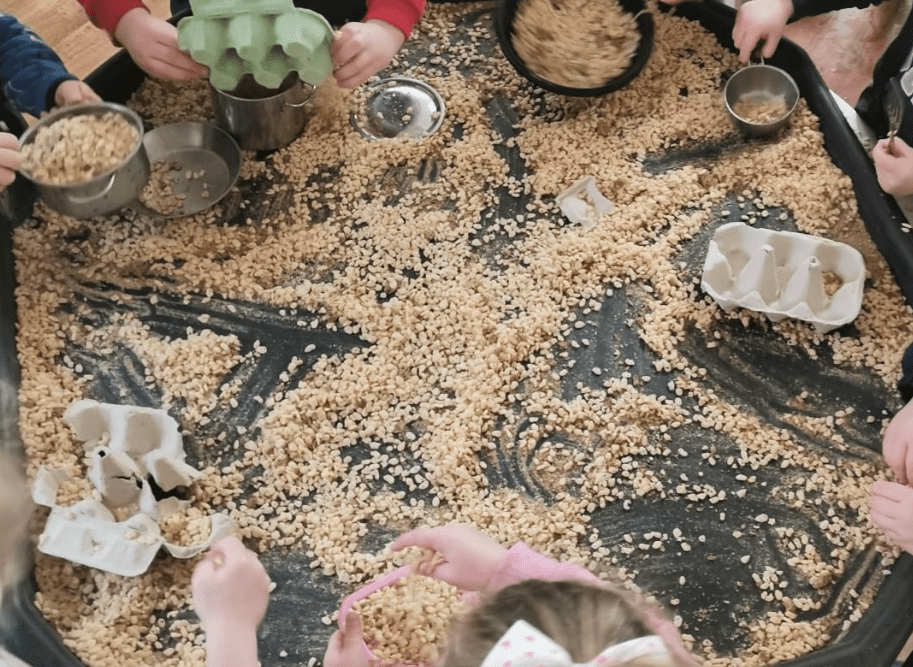
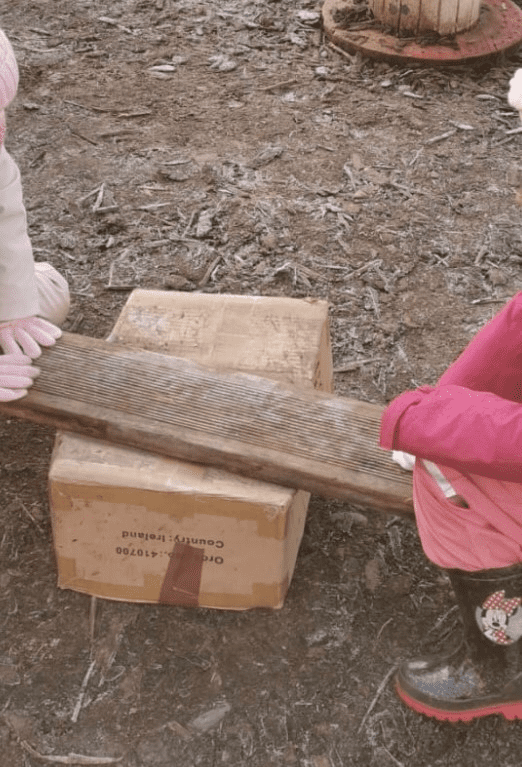
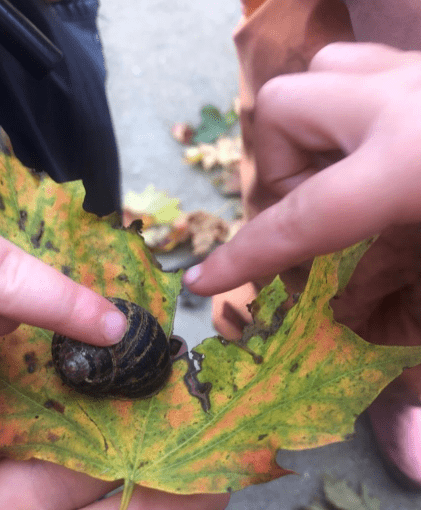
The Child’s Perspective
“We always say, ‘Look, it’s not about the product.'” Children, with their curiosity and boundless energy, exemplify this sentiment. For them, the journey of learning is a hands-on experience that extends beyond the final outcome. Children are constantly learning, exploring, and discovering, driven not by the desire for a polished end result but by the sheer joy of touching, feeling, moving, and participating. What might seem a mess to an outside observer is a wonderful and carefully thought-out masterpiece to the children. In the sentiments of Aistear (National Council for Curriculum and Assessment 2025) and Síolta (Department of Education and Skills 2017), the children are learning through active exploration of their environment and gaining first hand experiences of the world around them. Yet, even with this awareness, as educators, we sometimes inadvertently steer children towards the end result. This involves providing templates, offering support akin to holding their hands, and imposing our own constraints on their work. I constantly remind myself that it’s okay if at the end of the day, parents aren’t presented with “proof” of their child’s learning. What truly matters is what the child gains from the process. However, in putting on my educator hat, I need to consider how this may link with inspections. Both Tusla and the Department of Education’s inspection tools make reference to the learning environment and experiences. Tusla’s Quality and Regularity Framework (2018) provides guidance on both indoor and outdoor environments and suggesting that educators should provide opportunities for children to learn through active, hands on experiences where they can play, explore, experiment and discover, while the Department of Education’s Early Years Education Focused Inspection’s toolkit with Area 3 of the Toolkit discussing the quality of children’s learning experiences and achievements (Department of Education 2025).
Breaking Free from Constraints
Children are not confined by the notions of right and wrong or the pressure to colour within the lines. In their world, there is no predetermined “correct” way of doing things. This lack of inhibition allows them to approach challenges with a sense of freedom and creativity, without the fear of making mistakes. It’s a mindset that promotes experimentation, resilience, and a genuine love for the learning process. Open-ended materials play a crucial role in nurturing this mindset. These materials, without specific instructions or predefined outcomes, encourage children to explore and create without constraints. Whether its cardboard boxes, “cooking” supplies in the mud kitchen, or stones and pieces of wood, open-ended materials provide a canvas for imagination to flourish. The process becomes the focal point, and the learning experience becomes a beautiful journey of discovery. These materials, coupled with the freedom to engage in unstructured play, create an environment where the process is celebrated. The more invitations to play, the richer the learning experience. As educators, we should facilitate this by setting up the outdoor classroom in a way that sparks curiosity, encouraging children to interact with their surroundings on their terms.
The Educator’s Role
In my journey as an educator, my responsibility is not just to provide knowledge, but to set up the classroom in a way that invites curiosity and sparks creativity. Creating an environment filled with invitations to play is essential. These carefully designed invitations serve as a beginning for exploration, encouraging children to engage with the learning materials in a way that promotes critical thinking and problem-solving. In the outdoors, themes are not as important as the organic flow of play based on the children’s surroundings. If a child discovers a snail while exploring, we can easily modify our planned “Camping” theme and embrace the spontaneous interest in the tiny creature. This flexibility allows us to embrace the individual curiosity of each child, making learning a personalized and meaningful experience for them.
In my learning journey as an educator, it’s essential to remind myself regularly that “it’s not about the final project or product; it’s all about the process.” Embracing this philosophy allows me to appreciate the genuine joy of learning, the boundless creativity of children, and the transformative power of open-ended materials. By prioritizing the journey over the destination, we can create educational environments that inspire a lifelong love for learning and foster an appreciation for the beauty of the learning process.
I found the book “Stick Man” by Julia Donaldson to be a useful tool in helping children understand the power of perception and imagination. You can find it here

Here are some further examples of invitations to play, or play provocations, as Aistear (NCCA, 2025) discusses.
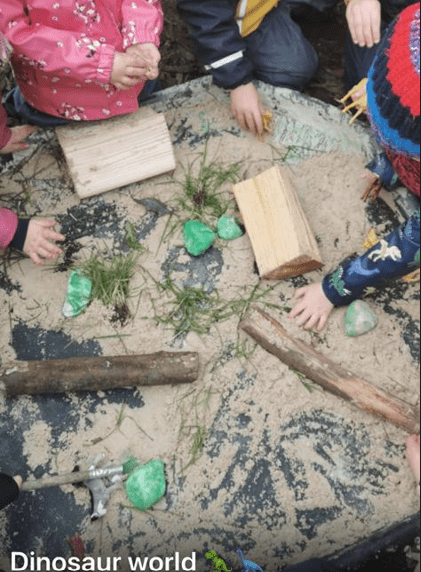
The children engaging with dinosaur world.
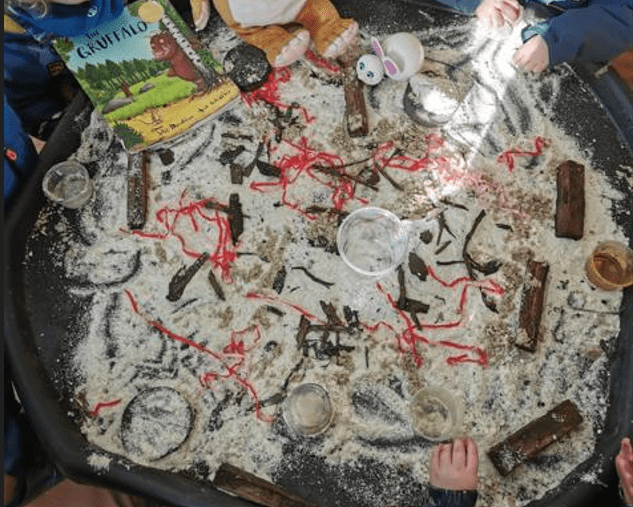
The children’s interpretation of the Gruffalo.
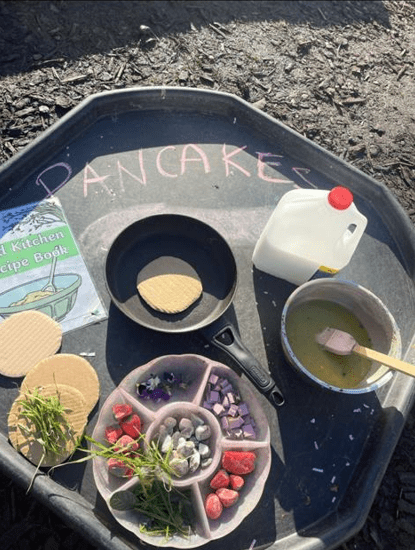
The children creating their own pancakes.
References
DES (2017) Síolta: The National Quality Framework for Early Childhood Education. [Online], available https://www.siolta.ie/pdfs/siolta-manual-2017.pdf accessed 13 Mar 25
DES (2025) A Guide to Early Years Inspections. [Online], available https://assets.gov.ie/233708/a923cf1c-6565-48d8-a96b-2b1330e70b14.pdf accessed 13 Mar 25
NCCA (2025) Aistear: The Early Years Curriculum Framework. [Online], available https://www.curriculumonline.ie/early-childhood/aistear-2024/, accessed 13 Mar 25.
Tusla (2018) Quality and Regulatory Framework: Full Day Care Service and Part-Time Day Care Service, Dublin: Early Years Inspectorate, Tusla
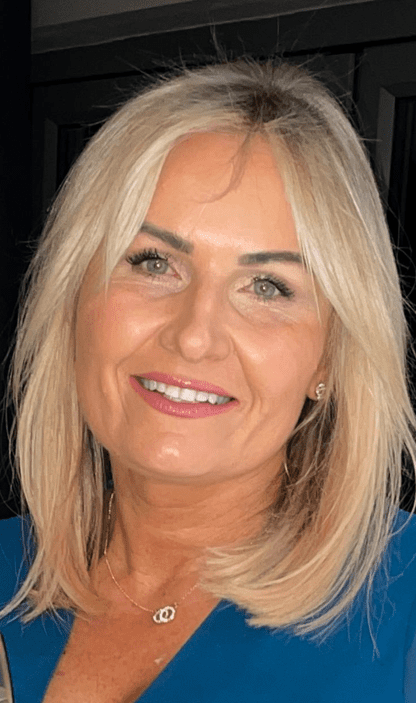
Judyta Golden
Early Years Leader and the Room Leader for the outdoor setting at Starting Small Standing Tall
Judyta Golden is a dedicated professional with a background in early childhood education spanning several years. Currently, she is the Early Years Leader and the Room Leader for the outdoor setting at Starting Small Standing Tall in Limerick.
Judyta was born in Poland, and at the age of 12, she embarked on a life-changing adventure, immigrating to the United States. For the past 26 years, she has called Ireland home, infusing her experiences from different cultures into her passion for nurturing and educating young minds.
Committed to fostering a positive learning environment, Judyta finds joy in working with children and promoting cultural diversity and inclusion in early childhood development.
You may also like:
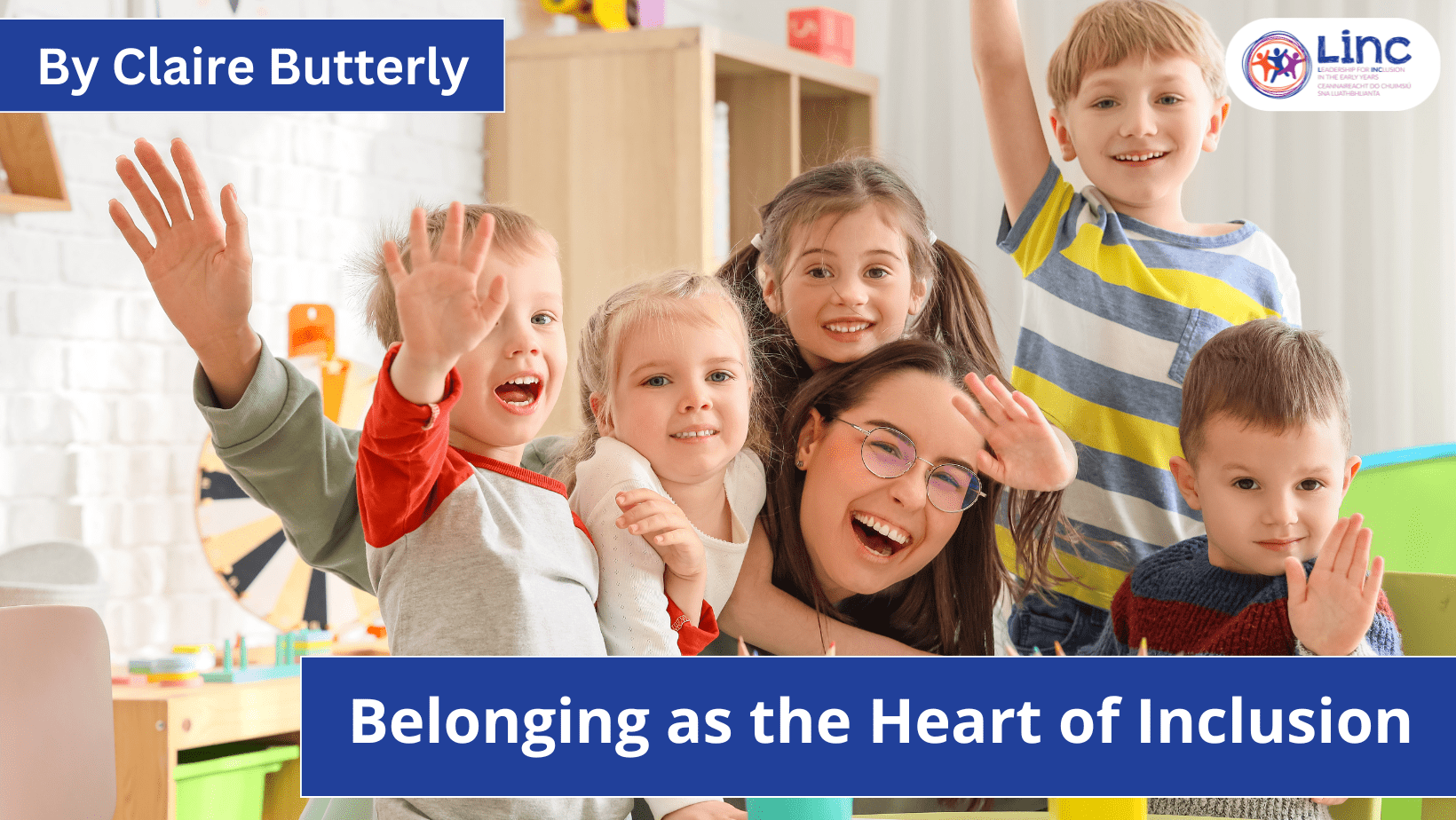
Belonging as the Heart of Inclusion
Belonging as the Heart of Inclusion In this edition of the LINC Blog, LINC National Coordinator Claire Butterly reflects on belonging as the heart of inclusive practice in Early Learning and Care and School-Age Childcare settings. Drawing on the principles of Aistear,...
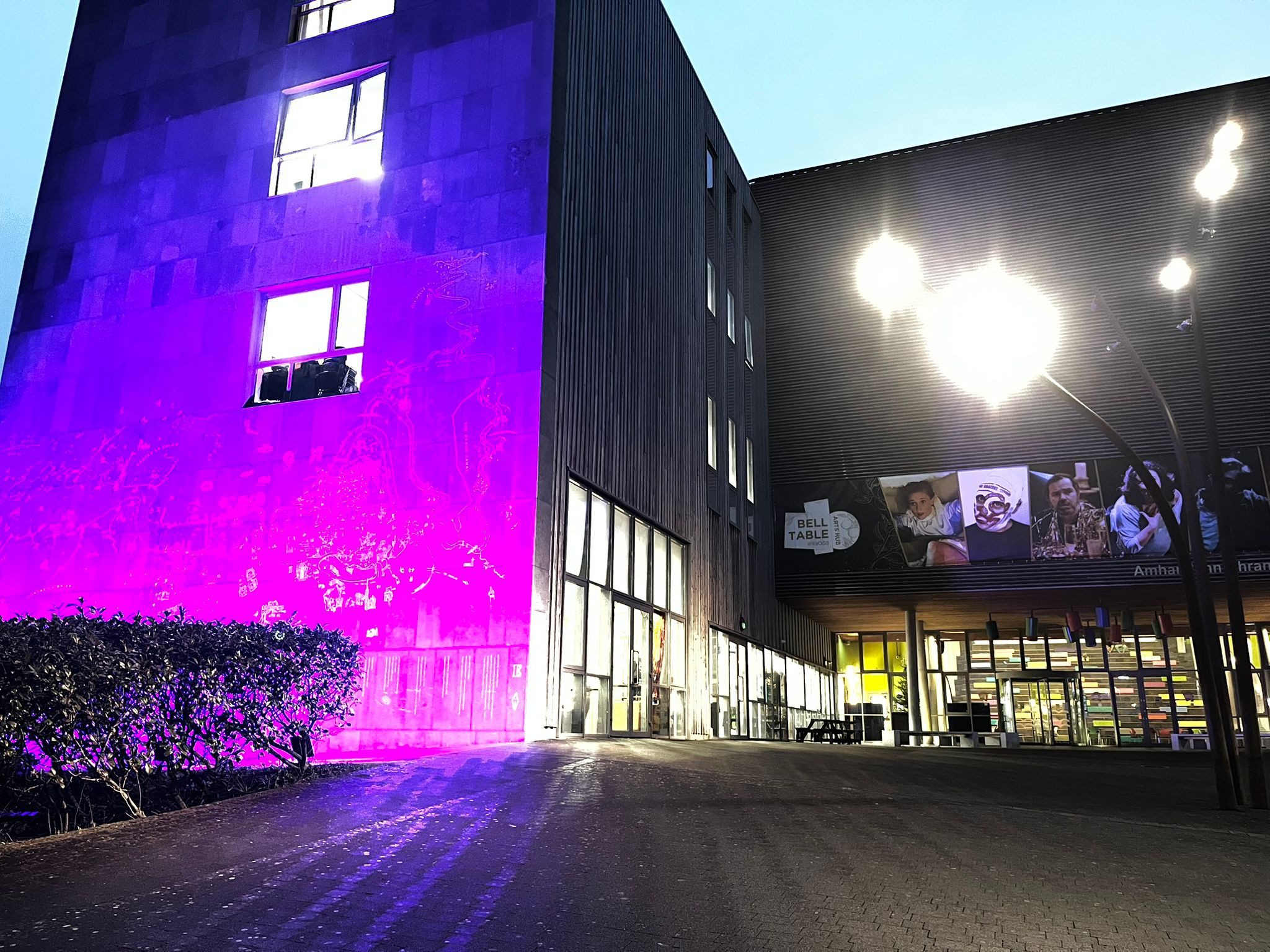
LINC Shines a Light on Inclusion for the International Day of Persons with Disabilities 2025
LINC Shines a Light on Inclusion for the International Day of Persons with Disabilities 2025 The Leadership for INClusion in the Early Years (LINC) Programme marked the United Nations International Day of Persons with Disabilities (IDPD) this evening by illuminating...
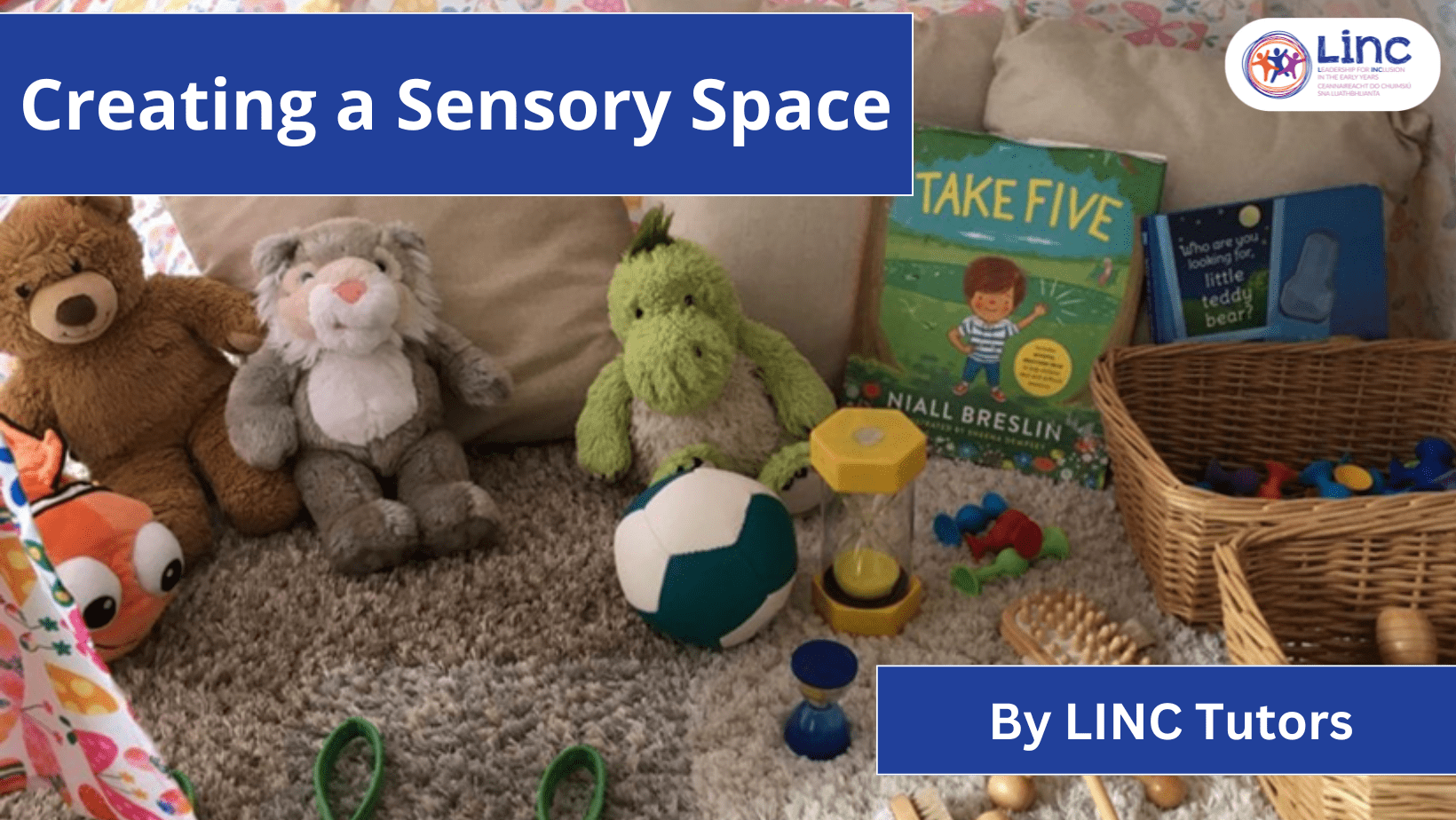
Creating a Sensory Space
Creating a Sensory Space In this edition of the LINC blog, Claire Butterly, Karina Abbott, Ann Donnellan, Carole Dee, Linda Madden, Margaret Joyce and Paula Harte highlight some considerations when planning a sensory space in your Early Learning and Care setting....
